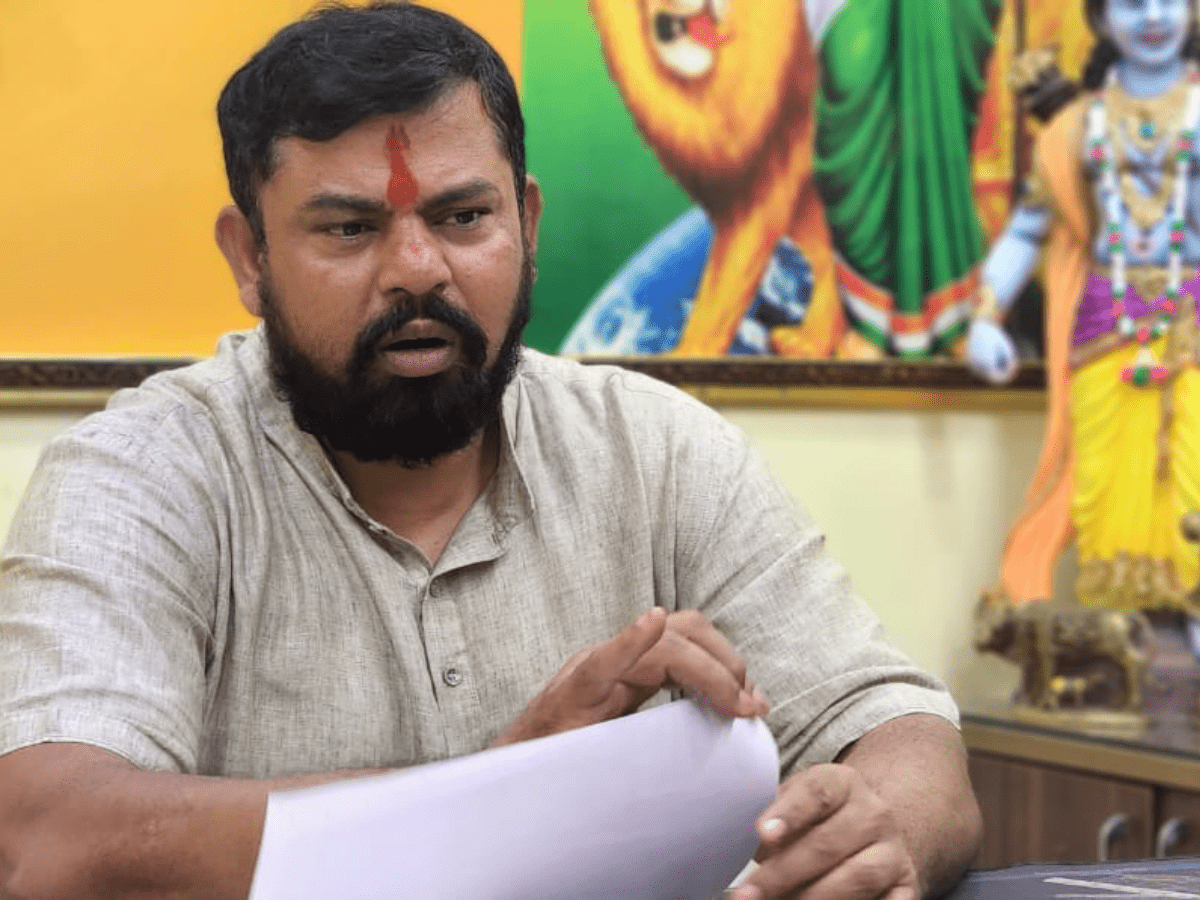
Hyderabad: Goshamahal constituency MLA and suspended BJP leader Raja Singh reacted on Tuesday to the decision of Telangana IT and Industries Minister K T Rama Rao to take up the matter related to the Razakar movie with the censor board.
In a video shared on his X (formerly Twitter) handle, he said, “After the release of the teaser, various people are commenting. In a tweet, KTR said that he would take up the matter with the censor board. I would like to say to KTR, ‘Your father has not told you how many people were killed by Mir Osman Ali Khan during Nizam’s rule.’ I propose that we both watch the movie first and then decide whether to proceed with the ban or let the public learn about the atrocities committed by the Razakars against Hindus.”
KTR to take up matter with censor board
Yesterday, following the release of the teaser for the Razakar movie, Telangana IT and Industries Minister K T Rama Rao decided to take up the matter with the censor board.
He stated, “Some intellectually bankrupt individuals from the BJP are making efforts to incite communal violence and polarization for their political agenda in Telangana.”
He also mentioned that the matter would be brought to the attention of the Telangana police to ensure that the law and order situation in Telangana is not affected.
Razakar movie teaser
On Sunday, the teaser for the Razakar movie was unveiled, and it is scheduled to be screened in cinemas soon.
The movie asserts that “India gained independence on August 15, 1947, but Hyderabad did not.” It also aims to shed light on the alleged atrocities committed against the public of erstwhile Hyderabad by the Razakars.
Who were the Razakars?
The Razakars were the paramilitary volunteer force of the nationalist party in the Hyderabad state under Nizam’s rule.
They were established in 1938 by the Majlis-e-Ittehadul Muslimeen leader Bahadur Yar Jung and expanded significantly during the leadership of Qasim Razvi around the time of India’s independence.
Following the integration of erstwhile Hyderabad into the Indian Union, Qasim Razvi was initially imprisoned. Later, he was allowed to move to Pakistan, where he was granted asylum.



